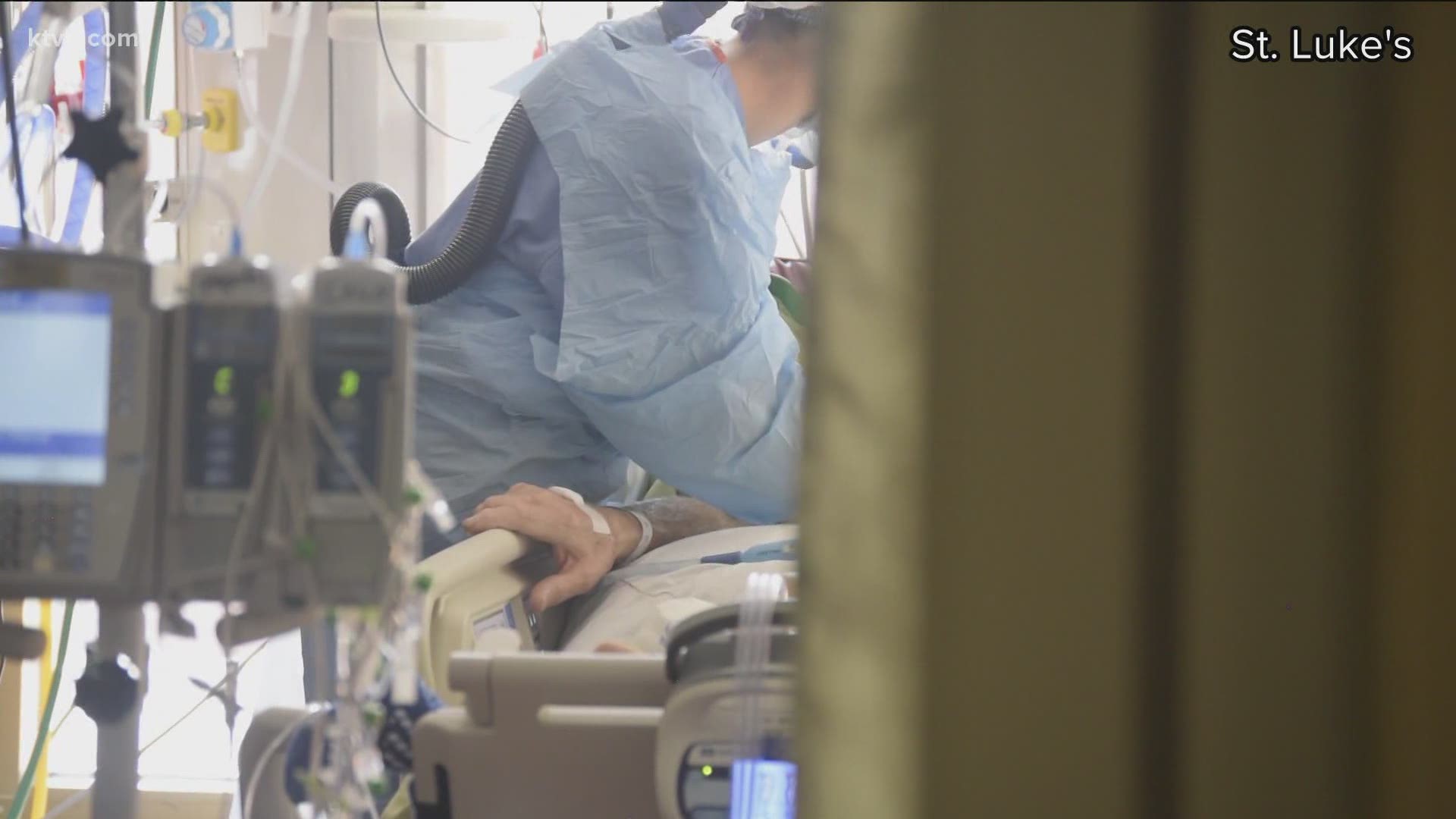BOISE, Idaho — The Idaho Department of Health and Welfare anticipates receiving and distributing the Pfizer COVID-19 vaccine by mid-December, first to healthcare providers then to people living and working in long-term care facilities.
About 6.4 million doses of the vaccine will be available nationwide, but Idaho will only receive a sliver of that — 13,650.
However, medical staffs at both Saint Alphonsus and St. Luke's say they've been waiting for the vaccine rollout and are ready for it.
"This really couldn't be coming at a more needed time, the current state of the pandemic in the United States is really out of control," St. Luke’s Chief Medical Officer Dr. Jim Souza said.
During an internal meeting, St. Luke's staff discussed what the rollout would look like.
"The way we are deciding, or prioritizing people is really, where do you work, not so much what is your role so a great example would be, I think all of us would consider a covid until or if you work in the emergency room, that you are in a high-risk clinical area," Dr. Laura McGeorge said.
The doses will arrive in weekly shipments and won't just be a single shot.
"These vaccines have a prime, a first shot, and a booster, that's designed to really solidify the immune response to give us much longer-lasting immunity than natural infection," said Dr. Sky Blue, an infectious disease specialist.
Saint Alphonsus has a similar rollout plan based on prioritizing employees who have the highest exposure risk in the hospital.
"We have people that have been working hard, we have a certain number that are out on quarantine, and if we have any more of that it's going to be challenging for us to care for the people that need care so it's important to get those folks as immune as possible so that they can care for the general public as we start working on getting the public vaccinated as well," Dr. Patrice Burgess, the executive director for Saint Alphonsus, said.
But many are skeptical of the vaccine because of how quickly it was developed.
"I know some people just say well why don't we just get infected and get it over with well a certain percentage of people aren't going to do well with the infection and people that do have the infection, we've seen cases around the world where people get infected again and the vaccine seems to have a stronger immune response, so the more people we can get vaccinated, the less community spread we will have," Dr. Burgess said.
Although there is still a fair number of unknowns about the vaccine, medical experts said what they do know is promising.
"These vaccines, as far as their effectiveness, is very exciting, we don't see this very often a lot of our vaccines are 60, 70, 80 percent effective, these are 94 and 95 percent effective, so once we get enough people vaccinated, it's going to be a very exciting development," Dr. Burgess said.
"When we are talking about unknowns, which there are, and I'm not going to gloss over that, but we know about what this natural infection does so when we compare those, at the frontlines of being exposed and those of the community who are at severe risk of disease and death, those risks vastly overshadow the unknown risks that we are talking about in the one-in-a-million vaccinated individuals here," Dr. Blue said.
The COVID-19 vaccine is still a couple of weeks away from being shipped to hospitals.
Both doctors said this bit of good news does not mean people can start to relax their social distancing and mask-wearing as the vaccine is still a ways away until it will available to the general public.

